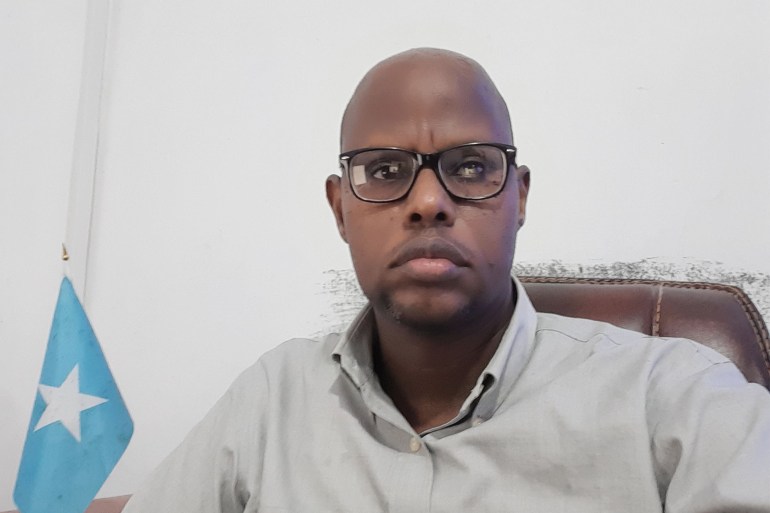The Somali consultative meeting on the parliamentary and presidential elections ended in failure, after 3 days of arduous discussions that took place in the city of Dusemrib in central Somalia, where federal government officials led by Somali President Muhammad Abdullah Farmajo and leaders of 5 states worked to find a compromise formula to end their differences and prepare the atmosphere for the start of the elections Elective quickly.
Despite repeated calls from the international community for Somali leaders to bring their views closer and reach a satisfactory settlement for all, each party's adherence to its positions led the meeting to a dead end, especially regarding the issue of "Gedo" governorate in the state of Jubaland, which was the focus of the dispute, especially who has the right to administer The electoral process in it and the appointment of the delegates who will elect members of the next parliament in the province.
Responsibility for failure
The Somali president blamed the failure on the elections - in a speech he made to Parliament after his return from Dosmereb yesterday - to the leaders of the states of Puntland and Jubaland, explaining at the same time that his government had shown enough flexibility and concessions in order to reach a solution.
Somali President Mohamed Abdullah Farmajo in his speech to Parliament on February 6, 2021 (Presidential Office)
Meanwhile, Jubaland State President Ahmed Madoubi blamed the failure on the Somali president in particular and his government.
He pointed out that his state has the right to administer the Gedo Governorate and its elections on the basis of its subordination to it within the framework of the federal system followed in the country, not the federal government, and he says that in spite of this they accepted the compromises proposed by the leaders of other states, while the Somali president rejected these solutions, Therefore, he is responsible for the failure of the meeting, according to Madoubi.
Observers wonder about the fate of the elections after this failure and failure to reach an agreement, especially since the mandate of the Somali parliament ended at the end of last year, while less than a day remained until the end of Farmajo's presidential term.
Abdel Qader Othman believes that the country does not live in a constitutional vacuum (Al-Jazeera)
Extension option
Abdul Qadir Osman, editor of the Mogadishu Press website, does not believe that the country is living in a constitutional vacuum, because the parliamentary and presidential institutions are empowered to lead the country until a new parliament and a new president are elected. As for the open options, they are numerous, the most prominent of which is that an initiative comes from the leaders of the states of Puntland and Jubaland, and they make real concessions Paving the way to organize elections.
He adds that the second option is to hold another meeting between the federal government and state leaders, while showing more seriousness, avoiding political bids, focusing on the public interest, relieving congestion and being flexible, which is the most likely option in his view.
Othman says that if these options are not fulfilled, the Somali parliament may tend to extend the term of parliament and presidency institutions for a year or two, while external pressure may come within these options.
But Farhan Ishaq, a researcher at the Public Agenda Center for Political Studies, excludes the option of extending for two reasons: the first is that Parliament ended its mandate last year and therefore has no right to take fateful decisions, and the second is that the extension decision is rejected by the international community and the political opposition.
Farhan Ishaq rules out an extension to parliament and the presidency (Al-Jazeera)
Intervention of the international community
Ishaq explains that the decision to extend the extension is made only with the agreement and consensus of the Somali political partners from the government, states and the opposition, with specifying the period and forming an agreed transitional government that paves the way for organizing the parliamentary and presidential elections, but he believes that the time factor is important, and that if the Somali leaders do not resolve their differences in the coming weeks, The involvement of the international community may be a deciding factor.
He adds that the intervention may take a direct character in the first time, on the basis that the political decision in Somalia is something that the Somalis have, explaining that what the international community is doing is holding a meeting of Somali leaders attended by members of it as observers, and in the event that this attempt does not succeed, the imposition and dictation of the will of the international community Somali leaders are inevitable, according to Ishaq in his interview with Al-Jazeera Net.
After the collapse of the previous military regime in 1991, Somalia entered into a civil war that led the country to a state of division, but after many attempts to save it from disintegration, the Somali political parties in 2000 reached a formula for power-sharing on the basis of a tribal standard, in transitional periods that extended until 2012. .
It is the year in which Somalia formally exited from the transitional period to permanent governments, and since that day, two electoral processes have been organized in Somalia, in the first of which Hassan Sheikh Mahmoud was elected president in 2012, while in the second President Muhammad Abdullah Farmajo was elected in 2017, and the country is to come. Now on a new electoral process.

